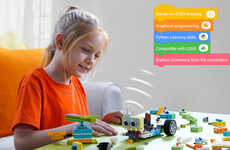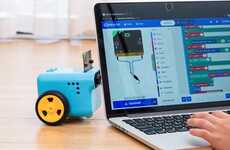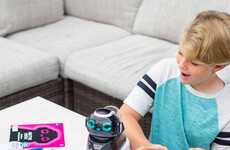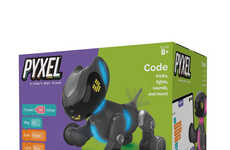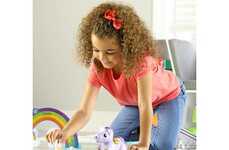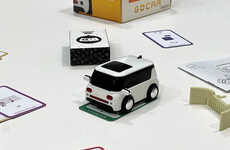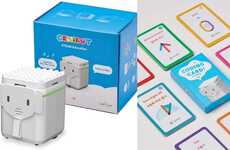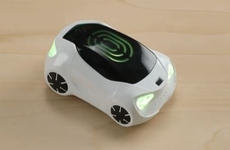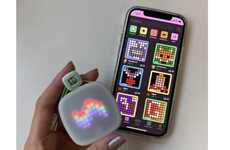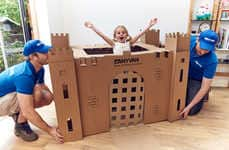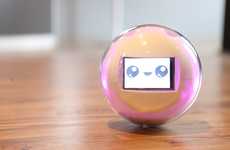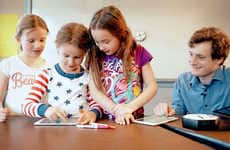
Google's 'Project Bloks' Uses Toys to Teach Kids How to Code
Laura McQuarrie — June 28, 2016 — Life-Stages
References: projectbloks.withgoogle & engadget
Google's 'Project Bloks' introduces an open hardware toy for kids that will teach them some of the foundations of computer science. This is a collaborative project from Google's Creative Lab division and Paulo Blikstein of the Transformative Learning Technologies Lab at Stanford University.
There are three pieces to playing with Project Bloks: a Brain Board that houses the main processing unit, modular Base Boards and Pucks, which are used to send coded instructions. As well as being able to learn some of the basics of coding, kids will benefit from a quality playtime activity that encourages learning through the sensation of physical touch, versus a screen and a keyboard.
Around the world, billions of dollars are being pledged towards educational computer science initiatives. Outside of the classroom, programming games and toys like these are appearing to help parents invest even more in their children's future.
There are three pieces to playing with Project Bloks: a Brain Board that houses the main processing unit, modular Base Boards and Pucks, which are used to send coded instructions. As well as being able to learn some of the basics of coding, kids will benefit from a quality playtime activity that encourages learning through the sensation of physical touch, versus a screen and a keyboard.
Around the world, billions of dollars are being pledged towards educational computer science initiatives. Outside of the classroom, programming games and toys like these are appearing to help parents invest even more in their children's future.
Trend Themes
1. Educational Coding Toys - The rise of educational coding toys like 'Project Bloks' presents opportunities for innovative learning experiences that combine physical play with digital skills.
2. Physical Learning Experiences - Toys that engage children through physical touch, like 'Project Bloks,' open up possibilities for interactive learning outside of screens and keyboards.
3. Parental Investment in Future Skills - The increasing popularity of programming games and toys indicates parents' willingness to invest in their children's future by providing early exposure to computer science and coding.
Industry Implications
1. Toy Manufacturing - The development and production of coding toys like 'Project Bloks' require innovative approaches to combine physical and digital elements in engaging ways.
2. Education Technology - The integration of coding toys into educational settings presents opportunities for companies to develop tools and platforms that facilitate interactive and immersive learning experiences.
3. Parenting and Education Services - The growing demand for coding toys highlights the need for parenting and education companies to provide guidance, resources, and support for parents who want to foster their children's digital skills.
4.4
Score
Popularity
Activity
Freshness

